2004 Toyota Camry Service, Tires & Repairs
Get Started
Complete Auto Care for Your 2004 Toyota Camry
-
TIRES FOR YOUR 2004 Toyota Camry View Tire Info GET TIRE PRICING
-
REPAIR FOR YOUR 2004 Toyota Camry View Repair Info SCHEDULE REPAIR
-
MAINTENANCE FOR YOUR 2004 Toyota Camry View Maintenance Info SCHEDULE MAINTENANCE
-
OFFERS FOR YOUR 2004 Toyota Camry Limited Time Tire Offers VIEW ALL COUPONS
2004 Toyota Camry Tires
Recommended Tires | Tire Information
2004 Toyota Camry Tires Sizes, Speed Ratings, and Inflation
Not sure about your 2004 Toyota Camry tire size? Use the following chart to find information on tire size, speed rating, and inflation.
| Trim Level | Speed Rating | Inflation in PSI F/R | Tire Size |
|---|---|---|---|
| 2004 Toyota Camry XLE | V | 29 PSI/29 PSI | P215/60R16 |
| 2004 Toyota Camry LE* | V | 29 PSI/29 PSI | P215/60R16 |
| 2004 Toyota Camry LE* | T | 29 PSI/29 PSI | P205/65R15 |
| 2004 Toyota Camry LE* | H | 29 PSI/29 PSI | P205/65R15 |
| 2004 Toyota Camry SE | V | 29 PSI/29 PSI | P215/60R16 |
|
2004 Toyota Camry XLE Speed Rating: V Inflation F/R: 29 PSI/29 PSI |
|
2004 Toyota Camry LE* Speed Rating: V Inflation F/R: 29 PSI/29 PSI |
|
2004 Toyota Camry LE* Speed Rating: T Inflation F/R: 29 PSI/29 PSI |
|
2004 Toyota Camry LE* Speed Rating: H Inflation F/R: 29 PSI/29 PSI |
|
2004 Toyota Camry SE Speed Rating: V Inflation F/R: 29 PSI/29 PSI |
* Note: these models have different tire sizes depending on vehicle options.
Recommended Tires for Your 2004 Toyota Camry
What tires are best for a 2004 Toyota Camry? Check out the following tire brands and types.
 Blizzak WS90
Blizzak WS90
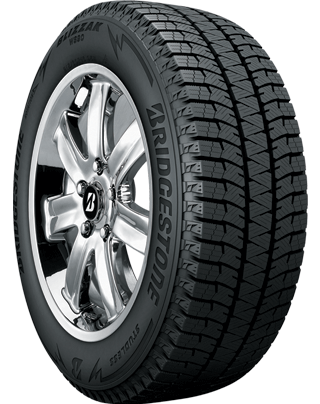
- No warranty
- Winter
- Winter
 Ecopia EP422 Plus
Ecopia EP422 Plus
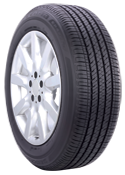
- Platinum Pact Limited Warranty
- All-Season
- Performance
 Turanza QUIETTRACK
Turanza QUIETTRACK
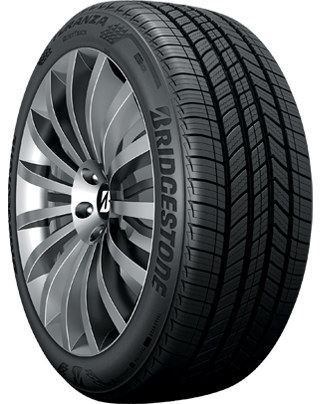
- No warranty
- All-Season
- Performance
 WEATHERPEAK
WEATHERPEAK
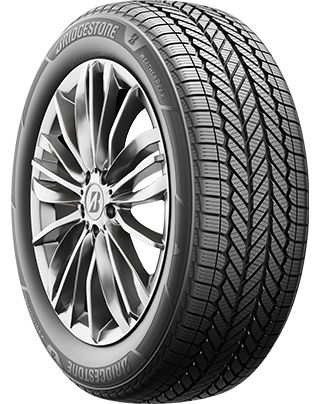
- Platinum Pact Limited Warranty
- All-Season
- Passenger Tires
 ALL SEASON
ALL SEASON

- No warranty
- All-Season
- Passenger Tires
 WEATHERGRIP
WEATHERGRIP
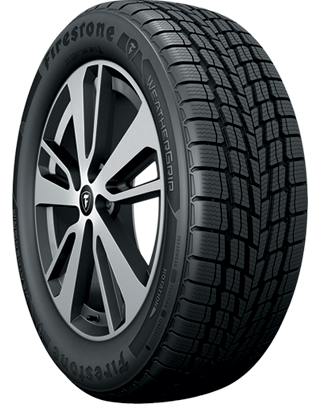
- No warranty
- All-Season
- Passenger Tires
 Winterforce 2
Winterforce 2
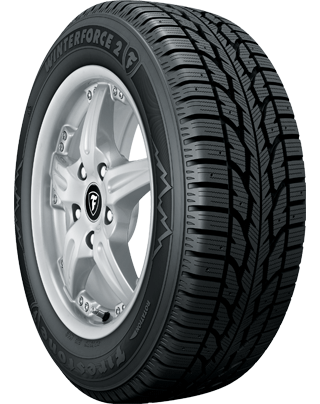
- No warranty
- Winter
- Winter

- No warranty
- All-Season
- Passenger Tires

- No warranty
- All-Season
- Passenger Tires
 Extensa A/S II
Extensa A/S II

- No warranty
- All-Season
- Passenger Tires
About 2004 Toyota Camry Tires
Other than getting the proper tire size, you also want to think about a couple of other things when getting new Toyota Camry tires like where and how you drive, and what tire brand you trust most. Think about where you live (countryside vs. city vs. mountains) and the kind of unexpected weather you're likely to experience when evaluating your driving conditions. Drivers in states that fully experience all four seasons often buy two sets of tires: one set for winter, one set for summer. Other drivers buy one set of all-season tires instead. That way they don't have to return to the tire shop and their vehicle is always ready for sun, rain, and light snow!
Next, consider your driving style. If you're a big off-roading fan who forges paths where others can't, you have very different needs than a long-distance commuter who sticks to the highway. Talk to a tire technician at Firestone Complete Auto Care for help choosing the best tire for you, or start shopping for Toyota Camry tires online.
Toyota Camry Installation and More
We sell tires, but we also service them and care for all the around-the-wheel components. We're your one-stop shop for tire installation, rotation, and ongoing maintenance! Buy 2004 Toyota Camry tires online and schedule your installation when it's convenient for you.
2004 Toyota Camry Tire Q&A
-
Why check Toyota tire inflation? Even a tiny decrease in tire pressure could impact your safety and fuel economy. Maintaining proper tire pressure can help increase fuel economy, improve braking time, and boost tire lifespan.
-
What do the tire sidewall numbers mean for my Toyota Camry? Your tire sidewall numbers tell you the recommended load carrying capacity, speed rating, treadwear, traction, and tire size. Talk to a tire technician to learn how to read Toyota tire numbers.
-
Is there an easy way to check Toyota tire tread depth? Stay on top of your tire tread depth to help avoid a dangerous drive. You can check tread depth with a penny. Hold the penny so that Abraham Lincoln is facing you, then place your penny into a tread groove upside down. If you can see the top of Abe’s head, your tread is shallow and it might be time for new Toyota Camry tires. Grab a penny. Hold the so that Abe Lincon's head is facing you and his hair is pointing toward the ground. Then, place the penny into a tread groove. If you can see the top of Abe’s head, your tread is shallow and it might be time for new Toyota Camry tires.
Repair Services for Your 2004 Toyota Camry
How do I learn more about auto repairs? Click on a service below to read about the types of Toyota Camry repairs we do at Firestone Complete Auto Care.
About 2004 Toyota Camry Repairs
No driver looks forward to car repairs. But we work to provide you with a different experience at Firestone Complete Auto Care. When you come to us for 2004 Toyota Camry repair services, rest easy knowing that your Camry is in capable hands. We’ll start by assessing what repairs may be needed, and we’ll provide you with a detailed explanation of what we recommend. We value your trust, so we recommend only the repairs we think are necessary for your safety on the road.
How Much Are Toyota Camry Repairs?
Several factors can affect the cost to repair your 2004 Toyota Camry, including which repairs are needed, costs of replacement parts or repair supplies, how much labor the repair will take, and where you live. But regardless of where you’re located, check out our website for repair coupons and offers that could save you some cash.
A few different aspects can influence repair costs for your 2004 Toyota Camry, like
2004 Toyota Camry Auto Repair Questions
-
Do I need to follow Toyota's maintenance schedule? The cheapest 2004 Toyota Camry repair is the one that isn’t necessary in the first place! Staying up-to-date with your car’s scheduled maintenance services is a great way to keep future repair costs low.
-
Should I bring my Toyota in even if I can't pinpoint the problem? You’re in your car, day in and day out. So, it’s only expected that you know your car better than anyone else! If you notice mysterious smells, strange engine noises, or other out-of-the-ordinary symptoms while driving, trust your instincts and stop into Firestone Complete Auto Care for a Courtesy Check. Catching a potential issue early could help prevent Toyota Camry repairs.
-
Why do you recommend certain repairs for my Toyota? Talk to your technician. We'll never recommend a service or repair for your 2004 Toyota Camry that we don't think is necessary for your safety.
2004 Toyota Camry Brake Repair
Your Toyota Camry may be powered by a strong engine. But if you can’t brake, it might as well be scrap metal. If you notice your brakes are squeaking or not working well, don’t wait! Safe driving is difficult when your brakes are anything but their best. Plus, waiting can lead to more expensive parts wearing out and requiring replacement. Go to your local Firestone Complete Auto Care for 2004 Toyota Camry brake repairs. We offer many affordable brake repairs like brake pad/shoe replacement, rotor/drum resurfacing, brake fluid exchange, and wheel cylinder and brake caliper installation.
Answers to Your Camry Brakes Questions
-
Why does my Camry shake when I brake? Faulty brake calipers, worn brake pads or rotors, loose or worn suspension parts, and warped rotors can cause your Camry to shake during braking. If you’re experiencing odd brake behavior, schedule a free brake inspection at a nearby Firestone Complete Auto Care.
-
What is the average lifespan of Camry brake pads? Brake pads generally last between 30,000 and 40,000 miles. Your driving can affect how long your Camry brake pads last, though. For example, mainly driving on highways and gradually braking can help increase the lifespan of your brake pads, and carrying hefty loads or riding your brakes can shorten it.
-
Is it bad if my Camry is leaking brake fluid when off? Your Camry has a closed hydraulic brake system, meaning you should not have a brake fluid leak under normal conditions. However, parts of your brake system can wear out over time or become damaged, which can lead to a brake fluid leak.
Repairing Your Toyota Camry Drivetrain
You don't want to go to just anyone for drivetrain repair. Drivetrains for front, rear, and all-wheel-drive and 4WD vehicles are all different. You want to go to Firestone Complete Auto Care. We can help repair all of your 2004 Toyota Camry drivetrain components Your Toyota could be crying out for driveshaft repair if you notice clunks when shifting, vibration as your vehicle accelerates, resistance when turning, or heavy vibrations in your floorboards.
Questions About 2004 Toyota Camry
-
What are the symptoms of a damaged Toyota drivetrain system? Noises toward the back of your Toyota Camry, leaking fluid, trouble turning — these could all be signs of drivetrain damage you want to address. Take action before something more severe happens.
-
What triggers the malfunction indicator light (MIL) in a Camry? If your Camry has its malfunction warning light (more commonly called the check engine light) illuminated, it could indicate engine troubles, problems with the transmission, electrical issues, malfunctioning sensors, connector problems, or misfire issues.
-
How concerning is a drivetrain malfunction in my Camry? A drivetrain malfunction in your Camry should never be taken lightly. Driving with a malfunctioning drivetrain can put you in danger and lead to further vehicle damage, so it's essential to have a qualified mechanic assess and repair the problem as soon as possible.
2004 Toyota Camry Alignment Services
Alignment services involve precise adjustments to your Toyota Camry’s suspension system, which connects the wheels with the rest of the vehicle. During the service, the individual angles of your tires are adjusted so that they come into contact with the road in just the right way — the way Toyota intended them to. When you bring in your 2004 Toyota Camry, we’ll perform an alignment check first. After that, we can adjust your wheel alignment angles until they match Toyota’s recommended measurements.
Answers to Toyota Camry Alignment Questions
-
Are there road conditions that can hurt my Toyota Camry alignment? When it’s safe to do so, avoid driving over potholes or hitting curbs. These road obstacles can wreak havoc on your wheel alignment, as can wear and tear from rough road conditions.
-
How often does your Camry need a wheel alignment? It’s usually suggested you check your alignment about every 6,000 miles or 6 months (whichever occurs first). Still, you should reference your Camry owner’s manual for Toyota's recommended interval.
-
Do you need to get your Camry wheels aligned? While you don’t necessarily need to get an alignment when putting new tires on your Camry, it’s still a good idea. Ensuring your wheels are properly aligned can help support optimal handling, tire wear, and fuel efficiency.
Engine Repairs for Your 2004 Toyota Camry
When your Toyota Camry engine needs repairs, our expert techs will let you know what needs to be done and why before they get started. We never do any work without your sign-off. If a repair can wait, we'll let you know. But if immediate repairs are necessary for your safety, we’ll make sure that's clear, too. We seek to give you all the info you need to make a smart decision about our services. Turn to Firestone Complete Auto Care for your 2004 Camry engine repairs and you can feel good knowing that we only use Toyota-compliant replacement parts such as the timing belt, engine oil seal, fuses, or a different component.
2004 Toyota Camry Engine Q&A
-
Why does the check engine light in my Camry turn on when I start my car? It's okay if your check engine light comes on when you first start your vehicle. This is a sign that your vehicle is testing its circuits. The light should go off shortly. Bring your vehicle in if it doesn't.
-
Why does my Toyota engine sound different? Strange under-the-hood noises can point to problems within your Toyota Camry engine. Tapping or knocking could mean you need an oil change. Whistling sounds could mean you have an intake leak or misaligned belt. Squealing may be caused by a loose fan belt, and grinding could be a sign that something is wrong with your brakes — not the engine.
-
What could damage my Toyota Camry engine? Certain driving habits can damage your engine and should be avoided. These habits include 'running on fumes,' revving the engine while still in Park, or pushing 'the pedal to the metal' before the engine has warmed up. Help sustain your engine’s performance and efficiency by staying miles away from these bad driving practices.
Get Your Toyota Camry Tire Repaired
If the road has been rough on your 2004 Toyota Camry tires, Firestone Complete Auto Care can help. There’s a chance your tire could be plugged and patched (rather than replaced). Our technicians can inspect your tire and let you know if it is safe to repair. We'll start by evaluating the state of wear, the location of damage, type of damage, and the size of the damage.
If your 2004 Toyota Camry tire puncture can be repaired, we’ll get to work on the steps to fix it: (1) Separate the tire from the vehicle wheel, (2) fill the puncture to keep the moisture out, and (3) seal the inner liner with a repair unit to prevent air loss.
Your Questions About Toyota Camry Tire Repair, Answered
-
How soon should I have my flat tire repaired? A flat tire that’s not addressed can take a terrible toll on the rest of your car. Until you have it repaired or replaced, drive your Camry as little as possible to reduce your risk of damage to the wheels and alignment – or further damage to that already struggling tire!
-
Is temporary sealant bad for my Toyota's tires? A temporary sealant may be able to help you get to a repair location safely. But temporary or emergency sealants could possibly damage TPMS sensors, and in some cases may even void the warranty on your Bridgestone or Firestone tires. If your tire needs extensive repair, sealant can add time and labor costs to the process.
-
Why do my Camry tires keep losing air? Tire punctures, damaged wheels, and leaking valve stems are possible reasons for your Camry tires continuously losing air.
2004 Toyota Camry Maintenance
Take care of your Toyota Camry and it'll take care of you. With the right maintenance at the right time, your Camry has a good chance of hitting 200,000 miles or more.
2004 Toyota Camry Maintenance Information
It can be overwhelming, but fortunately, there’s a resource that takes the guesswork out of routine Camry maintenance. Rely on the recommended maintenance schedule that’s been created just for your 2004 Toyota Camry! This recommended maintenance schedule is written by the auto manufacturer, Toyota themselves. Driving conditions, climate variations, and other variables can affect which scheduled maintenance services you’ll need; in most cases, though, recommended maintenance will consist of services like oil changes, tire rotations, brake pad replacement, filter changes, and fluid checks and exchanges. Staying on track with routine service appointments can help your Camry perform better, increase your vehicle safety, and help you avoid expensive repairs caused by 2004 Toyota Camry problems later.
Learn About Vital Maintenance Needs for Your Toyota Camry
Come to Firestone Complete Auto Care for manufacturer-recommended routine maintenance on your 2004 Toyota Camry and our technicians will jump right in with a Courtesy Check. This Courtesy Check can establish a baseline of what may need to be addressed during your service appointment. During a Courtesy Check, we’ll always check your battery, then we’ll move on to inspect your Camry’s head and tail lights, tires, fluid levels, alignment, and windshield wipers.
Firestone Complete Auto Care is your spot for 2004 Toyota Camry maintenance. Don’t wait until something goes wrong with your car. Visit your nearest location for proactive maintenance today.
2004 Toyota Camry Maintenance Questions
-
When should I have Toyota Camry alignment checked? Check your car for pothole damage! If you’ve recently hit a pothole (or even if you don’t remember hitting one… they can be sneaky!) check your tire treads, tire sidewalls, and wheels for damage. Potholes can also knock your car out of alignment, so have your alignment checked if you suspect you’ve driven over a rough patch of road lately.
-
When should I use high mileage oil in my Toyota Camry? If your Toyota Camry has ticked past 75,000 miles, consider switching to high mileage oil at your next oil change to give your engine what it needs to go another 75,000 (or more!). High mileage oil: make it a high priority!
-
Can Toyota dashboard warning lights wait? Because there might be a problem under the hood. Those warning lights are there for a reason! As soon as you notice that one’s illuminated, take your Toyota Camry to Firestone Complete Auto Care so you can address any small problems long before they worsen.
2004 Toyota Camry Battery Replacement & Size
Not sure what battery to get for your Toyota Camry?
| Battery | Engine | Warranty | Cold Cranking Amps | |
|---|---|---|---|---|
| 24F-3 | L4/2.4L | Replacement 24 months | Performance months | 650 |
| 35-2 | L4/2.4L | Replacement 36 months | Performance months | 640 |
| 24F-RP | L4/2.4L | Replacement 48 months | Performance months | 750 |
| 24F-3 | V6/3.3L | Replacement 24 months | Performance months | 650 |
| 35-2 | V6/3.3L | Replacement 36 months | Performance months | 640 |
| 24F-RP | V6/3.3L | Replacement 48 months | Performance months | 750 |
| 24F-3 | V6/3.0L | Replacement 24 months | Performance months | 650 |
| 35-2 | V6/3.0L | Replacement 36 months | Performance months | 640 |
| 24F-RP | V6/3.0L | Replacement 48 months | Performance months | 750 |
2004 Toyota Camry Car Batteries
The average car battery lasts three to five years. You want to replace your 2004 Toyota Camry battery before it fails and leaves you stranded. Watch for signs that your current battery is getting too old or too weak. A sluggish engine start, a blinking battery or check engine light, bloated battery case, corroded battery terminals, and subpar electrical performance can all signal that your battery is on its last leg.
You can also get a Free Battery Test at your local Firestone Complete Auto Care. Drop in for a free battery check and, if needed, a replacement battery for your 2004 Toyota Camry. Automotive batteries are just one of our many areas of expertise. Our technicians are well-acquainted with Toyota’s service specs for Camry battery CCAs and reserve capacity. Get help choosing the battery size that fits your car perfectly, and schedule a fast car battery replacement at your earliest convenience.
Top Toyota CamryCar Battery Questions
-
Why won't my Toyota Camry battery stay charged? A battery is in its final hour when it will no longer hold a charge. The battery may be too old. Or, you may have been leaving your car doors ajar and the cabin light at night. Stop by for a complimentary battery check at your favorite Firestone Complete Auto Care and get a handle on your car battery’s health.
-
How long do car batteries last? The typical 12-volt car battery may last three to five years, depending on the type of battery, the driving conditions, and how well the battery is maintained.
-
What is the white, crusty stuff around my Camry’s battery post? The white, crusty stuff that can accumulate around Camry car battery terminals is called corrosion. It is caused by a chemical reaction between the battery acid and the air, which creates a white, powdery substance that can build up on the terminals over time. Corrosion can interfere with the flow of electricity between the battery post and the car's electrical system, sometimes leading to poor electrical performance, difficulty starting, and even premature battery failure.
2004 Toyota Camry Oil Change Service
Toyota recommends having your 2004 Toyota Camry’s motor oil changed at regular intervals. No matter the mileage, your Camry may need its oil changed ASAP if your check engine light is on, you hear engine knocking, smell oil inside the vehicle, or notice excess vehicle exhaust. You may also need an oil change more frequently than Toyota recommends if you haul heavy loads, drive in dusty terrain, adventure off-road, or drive at low speeds for long distances.
Whether it’s synthetic, conventional, or a blend of both — your local Firestone Complete Auto Care has the right oil for your Toyota Camry. Consult Toyota's recommendations to select the right 2004 Camry oil and talk with a teammate to learn more about our oil options: Quaker State® Advanced Durability™ conventional oil, Pennzoil® High Mileage Vehicle® motor oil, Pennzoil Platinum® Full Synthetic motor oil with PurePlus™ Technology, and Shell Rotella® heavy-duty engine oil. During an oil change, an auto technician will change your Camry’s oil, replace and recycle your used oil and oil filter, inspect all of your other filters, top-off essential fluids, and visually inspect the rest of the vehicle. Let the experts take care of your Camry’s engine by making an oil change appointment today.
2004 Toyota Camry Oil Change Q&A
-
What does it mean if my Toyota Camry oil light comes on? Your Toyota Camry oil change reminder light may come on if you're overdue for an oil change. The oil pressure light will typically come on if the oil level in the engine is too low, the oil pump is failing, you have a clogged oil filter, or there's a faulty oil pressure sensor.
-
Can I change my Toyota oil on my own? Changing engine oil at home isn’t as simple as it’s made out to be. You’ll have to figure out how to properly dispose of the oil and buy special tools. Having your oil changed professionally can not only reduce the risk of something going wrong during the service, but it’ll also help your car perform smoothly down the road.
-
Why is my Toyota exhaust smoke gray or blue? There could be an oil leak and your engine is burning oil. Time to have a qualified technician check things out. The leak could be caused by several issues like leaking valve seals, damaged piston rings, or worn cylinder walls.
Engine Tune-Up Service for Your 2004 Toyota Camry
Routine engine tune-ups can bring power back to your Camry. Your nearest Firestone Complete Auto Care location has several options to choose from when it comes to Toyota Camry engine tune-up services. The standard Firestone Tune-Up is one service option. The standard Firestone Tune-Up includes new spark plugs (and installation!), a thorough inspection of engine components, and a lifetime parts warranty*. Another service option pays special attention to the filters in your Camry. Specifically, we replace the fuel filter and air filter. Yet another service is a fuel system cleaning process, which involves removing varnish, dirt, and carbon deposits that have built up inside the fuel injectors, throttle body, and throttle plate in your Camry. This can improve your fuel system’s performance (and therefore, your engine’s performance). Here’s something to remember when choosing services: the mileage and service history of your Camry can determine what kind of service it needs. Chat with a Firestone technician before you jump into a specific service to ensure your engine tune-up money is well-spent.
*Check with a teammate at Firestone Complete Auto Care for complete terms and conditions regarding warranties.
Common Engine Tune-Up Q&A for 2004 Toyota Camry
-
What happens if my Toyota Camry spark plugs fail? Replace spark plugs on time or about every 30,000 miles or so. Spark plugs are small but mighty. The spark of electricity that the plug emits across a small gap creates the ignition for the combustion needed to start your car. Without that spark, your car won't start.
-
What should I do if I see leaks under my Camry? Puddles could indicate that your vehicle is leaking coolant, oil, or brake fluid. Ignoring these leaks can lead to permanent engine damage, so address these symptoms ASAP with a tune-up service.
-
How often should I clean my Toyota Camry fuel injectors? The frequency at which car fuel injectors should be cleaned can vary depending on several factors, including the type of fuel used and the driving conditions. Some manufacturers generally recommend a fuel system cleaning as part of your general car maintenance, or as needed based on symptoms of poor fuel system performance.
2004 Toyota Camry Suspension Service & Repair
When you first drove your 2004 Toyota Camry, you and your passengers probably enjoyed a ride that was smooth and balanced. But these days, things are starting to feel a bit rough. Maybe your Camry bounces, leans to one side, or makes an unusual noise when going over a speed bump. The first sign of trouble is the best time to bring your 2004 Toyota Camry in for suspension and steering service. We’ll get to the root of the issue and, if steering and suspension service is needed, we’ll go over the services you need and how much they will cost before we do any work.
2004 Camry Steering & Suspension Q&A
-
Why is my Toyota Camry bouncing excessively? Excessive bouncing in your Toyota Camry might be due to damaged struts or shocks that are unable to absorb road bumps effectively, causing your vehicle to feel more like a pogo stick than a smooth ride.
-
Why does my Camry front end dip forward when I brake? The forward momentum and weight transfer to the front wheels during braking can cause your Camry's front end to dip forward. A damaged or faulty suspension system may fail to distribute the weight and force effectively, causing the front end to dip even more.
-
Does treadwear and tire pressure impact my Camry's steering and suspension? Maintaining your tires can help reduce strain on the suspension, nd also let you know when it's time to replace your tires. A faltering steering and suspension system could lead to uneven tire wear.
2004 Toyota Camry A/C Service Near You
Our trained technicians will do what they can to solve your 2004 Toyota Camry A/C problems. In this A/C performance inspection, we’ll check out the current condition of your 2004 Toyota Camry A/C system to determine whether repair work is needed. We’ll test overall system performance, check for any leaks, and measure the system pressure.
Let's say we repair your 2004 Toyota Camry A/C system. We will also perform an A/C evacuation and recharge. To start this process, a technician will flush out the old refrigerant from your vehicle’s A/C system. Next, they will evacuate the system according to Toyota's recommendations. Finally, we’ll recharge the A/C system with new refrigerant.
Questions About 2004 Toyota Camry A/C Systems
-
What’s making my Camry A/C put out warm air? An A/C blowing hot air has several possible root causes. There could be an issue with your compressor clutch, a blown fuse, a leak, or a clog in the expansion valve.
-
What causes A/C system leaks? To put it simply, age and moisture are some of the main causes of leaks in your A/C. Over time, rubber gaskets and seals can wear out, which pushes much-needed refrigerant out of your Camry’s A/C system — and lets outside moisture get in, which can take a toll on internal A/C components.
-
Why does my Camry’s A/C only work when the car is moving? Damaged or worn components in your Camry’s electrical or air conditioning system can cause the A/C to only work when the car is moving. You may be dealing with low coolant or a faulty cooling fan.
Transmission Services for 2004 Toyota Camry
The transmission delivers power from the motor to your wheels so that you can drive at your desired speed. Because your transmission is responsible for converting the right amount of power into the right amount of speed, even the smallest transmission problems should be addressed right away. 2004 Toyota Camry transmission problems can show up as shifting delays, grinding or jumping during acceleration, the car shaking at any speed, or whistling noises and a burning smell coming from under the hood. If you don’t pay attention to Toyota Camry transmission trouble you could see your fuel economy decrease or discover that your Camry’s not even driveable. Our technicians are trained to service 2004 Toyota Camry transmission systems according to vehicle manufacturer recommendations. Schedule an appointment at your local Firestone Complete Auto Care at the first sign of transmission problems to help keep your engine running at peak performance.
2004 Toyota Camry Transmission Questions & Answers
-
When should I have my Camry's transmission fluid checked or exchanged? Regularly checking and exchanging your 2004 Camry’s transmission fluid is one of the best ways to help the transmission system perform. Some technicians would say that between 30,000 and 60,000 miles is a good timeframe for having your Toyota's transmission fluid checked and replaced, but that timeline can vary depending on how your vehicle is used and your manufacturer’s recommendations. The good news is that transmission fluid leaks are affordable to repair and easy to spot.
-
Can transmission fluid leak from my Toyota Camry? Yes. Toyota Camry transmission fluid can leak over time and potentially cause transmission issues. Worn or damaged seals, a loose or damaged transmission pan, a cracked transmission housing, faulty transmission cooler lines, or an overfilled transmission could cause transmission fluid leaks.
-
Can I drive my Toyota Camry with a transmission fluid leak? It’s not advisable to drive your Camry if it’s leaking transmission fluid. Your transmission system needs transmission fluid to function properly, and a leak can lead to significant problems, such as overheating or reduced performance. You might even experience transmission failure.
Vehicle Inspection for 2004 Toyota Camry
Every service performed at Firestone Complete Auto Care includes a multi-point Courtesy Check. To start, one of our technicians will check the battery in your Toyota Camry to determine how much charge remains. The check will continue with a visual inspection of your Toyota Camry's lights, windshield wipers, filters, fluid levels, belts, hoses, tires, and alignment.
While every visit to your local Firestone Complete Auto Care includes a Courtesy Check, you can also request a Complete Vehicle Inspection for your 2004 Toyota Camry if you suspect there may be a bigger problem. In addition to a visual check of everything that's included in a Courtesy Check, a Complete Vehicle Inspection also includes a hands-on examination of your exhaust system, steering and suspension, and brakes. With this inspection, we want to help you stay on top of any issues that may wreak havoc on your 2004 Toyota Camry if left unaddressed.
Depending on your location, you may be able to complete your vehicle’s safety tests or state inspection at your nearest Firestone Complete Auto Care. Inspections are performed on a state-by-state basis and requirements vary.
FAQs for 2004 Toyota Camry Vehicle Inspections
-
How do I know if I should have an inspection on my Toyota Camry? It needs a check-up if something feels 'off' to you, the driver. Your Toyota Camry could benefit from a Courtesy Check if it has any illuminated dashboard lights, you hear weird noises coming from any part, the engine doesn't start sometimes, or your vehicle pulls to one side.
-
Help! My 2004 Toyota Camry failed the state inspection test. Can you get it to pass? There's a good chance we can. Stop by for a full system inspection and we'll get to the root of the issue.
-
What's the ideal timing for a full vehicle inspection on my Toyota Camry? You should bring your Toyota Camry in for a full vehicle inspection if something weird happens and you can’t find the problem. A new dashboard light might come on, you may hear strange sounds under the hood, or your steering might feel off. A complete inspection is also a great idea before a road trip for added peace of mind.
Radiator Service & Repair for 2004 Toyota Camry
Keeping up with regular radiator maintenance in your 2004 Toyota Camry is crucial to keep your engine in the best possible shape for years to come. Toyota recommends that you replace coolant (also called antifreeze) at certain intervals, but you can also take note of any signs your radiator is going bad. You could be on the verge of a radiator-induced engine breakdown if you see coolant leaks under your car, high engine temperatures, or a dashboard light that indicates low coolant.
When you come to Firestone Complete Auto Care, we’ll begin your radiator repair with an in-depth inspection of the cooling system in your Toyota Camry. Then, we’ll move on to a machine-powered coolant exchange. Finally, we’ll refill the flushed sealants, lubricants and chemicals, then do a pressure check to catch any possible leaks. From the heater core to the radiator cap, your 2004 Toyota Camry is in good hands at Firestone Complete Auto Care.
Common Toyota Camry Radiator Questions
-
What does an illuminated coolant temperature light mean for my Toyota? f the coolant light illuminates on your dashboard, your engine could be overheating. Pull over to a safe area and wait for the engine to cool down. Then, head to your nearest Firestone Complete Auto Care for a coolant system check.
-
What is causing my Camry to overheat? Low coolant, a damaged cooling fan, a faulty water pump, a malfunctioning thermostat, or a clogged radiator could all cause your Toyota Camry engine to overheat.
-
Why does the radiator in my Camry sound like it’s rumbling or boiling? Air pockets in your Camry’s cooling system may cause a rumbling or boiling noise. You could also have a clogged radiator or simply need to replace the radiator cap.